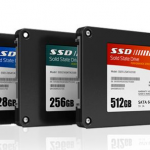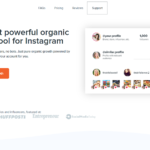Lessons from Successful Event App Case Studies: What Worked and Why
In today’s digital age, event organizers are constantly seeking innovative ways to enhance attendee experiences and streamline event management. The advent of event apps has revolutionized the event industry by providing organizers with powerful tools to engage participants, manage logistics, and gather valuable insights. Successful event app case studies offer valuable insights into what works and why in creating impactful experiences for attendees. In this article, we’ll delve into a few remarkable event app case studies, highlighting the strategies that contributed to their success.
Also, see a list of the top 25 event apps in 2023.
1. Personalization and Customization
One of the key takeaways from successful event app case studies is the emphasis on personalization and customization. The ability to tailor the app experience to individual attendees’ preferences enhances engagement and ensures that participants receive relevant information. For instance, at a technology conference, the event app allowed attendees to create personalized schedules by selecting sessions of interest. This feature not only empowered attendees to curate their experience but also helped organizers gauge the popularity of specific sessions, aiding in future planning.
2. Seamless Networking Opportunities
Networking is a critical component of any event, and event apps can play a pivotal role in facilitating meaningful connections. A case study from a business summit highlights how an event app incorporated features like matchmaking algorithms and interactive attendee directories. These functionalities enabled attendees to identify potential contacts based on shared interests and goals, leading to fruitful networking opportunities. By seamlessly connecting attendees, event apps contribute to the overall success of the event and leave a lasting impact.
3. Real-time Communication
In the fast-paced environment of events, effective communication is paramount. Successful event apps leverage real-time messaging features to keep attendees informed about updates, changes, and important announcements. A music festival case study demonstrated how push notifications were used to inform attendees about stage timings, artist lineups, and weather-related alerts. This timely communication not only enhances attendee experience but also showcases the event’s commitment to attendee satisfaction.
4. Gamification for Engagement
Engaging attendees throughout the event is a challenge that event apps can address through gamification. Gamified elements, such as quizzes, challenges, and scavenger hunts, can transform passive attendees into active participants. A charity fundraising event utilized gamification by awarding points for participation in fundraising activities. Attendees could track their progress on the app, fostering healthy competition and encouraging greater involvement in the cause.
5. Data-driven Insights
Data is a powerful tool that event organizers can harness to make informed decisions and enhance future events. Successful event app case studies emphasize the importance of gathering and analyzing data to gain insights into attendee behavior and preferences. By monitoring which sessions were most attended or which exhibitors received the most foot traffic, organizers can tailor their strategies for upcoming events. This data-driven approach ensures that events evolve to meet attendee expectations.
6. User-friendly Interface
An intuitive and user-friendly interface is critical for the success of any app. Event apps should be designed with the end-user in mind, ensuring easy navigation and accessibility to all attendees. A conference case study highlighted the success of an app with a simple layout, clear icons, and a logical flow of information. Such an interface not only enhances attendee satisfaction but also reduces the learning curve, making the app accessible to attendees of all tech-savviness levels.
7. Comprehensive Event Information
Event apps serve as a centralized hub for all event-related information. Successful case studies emphasize the importance of providing comprehensive details about schedules, speakers, exhibitors, and maps. An arts and culture festival case study demonstrated how the app included not only event logistics but also background information on artists, performances, and workshops. By offering a wealth of information, the app enhances attendees’ understanding and appreciation of the event’s offerings.
You can start building your event app today, with Fliplet.
In conclusion, the success of event apps lies in their ability to create personalized and engaging experiences for attendees. Successful event app case studies underscore the importance of personalization, networking opportunities, real-time communication, gamification, data-driven insights, user-friendly interfaces, and comprehensive event information. By adopting these strategies, event organizers can elevate their events to new heights, leaving a lasting impression on attendees and setting the stage for future success. As the event industry continues to evolve, the lessons from these case studies serve as guiding principles for creating exceptional event app experiences.
Cover Image by Freepik



![How Music Increase your Productivity [Infographic]](https://technofaq.org/wp-content/uploads/2017/07/pocket-roket-01-150x150.jpg)



![EU Road Trips [Infographic]](https://technofaq.org/wp-content/uploads/2016/10/eu-road-trip-150x150.jpg)





